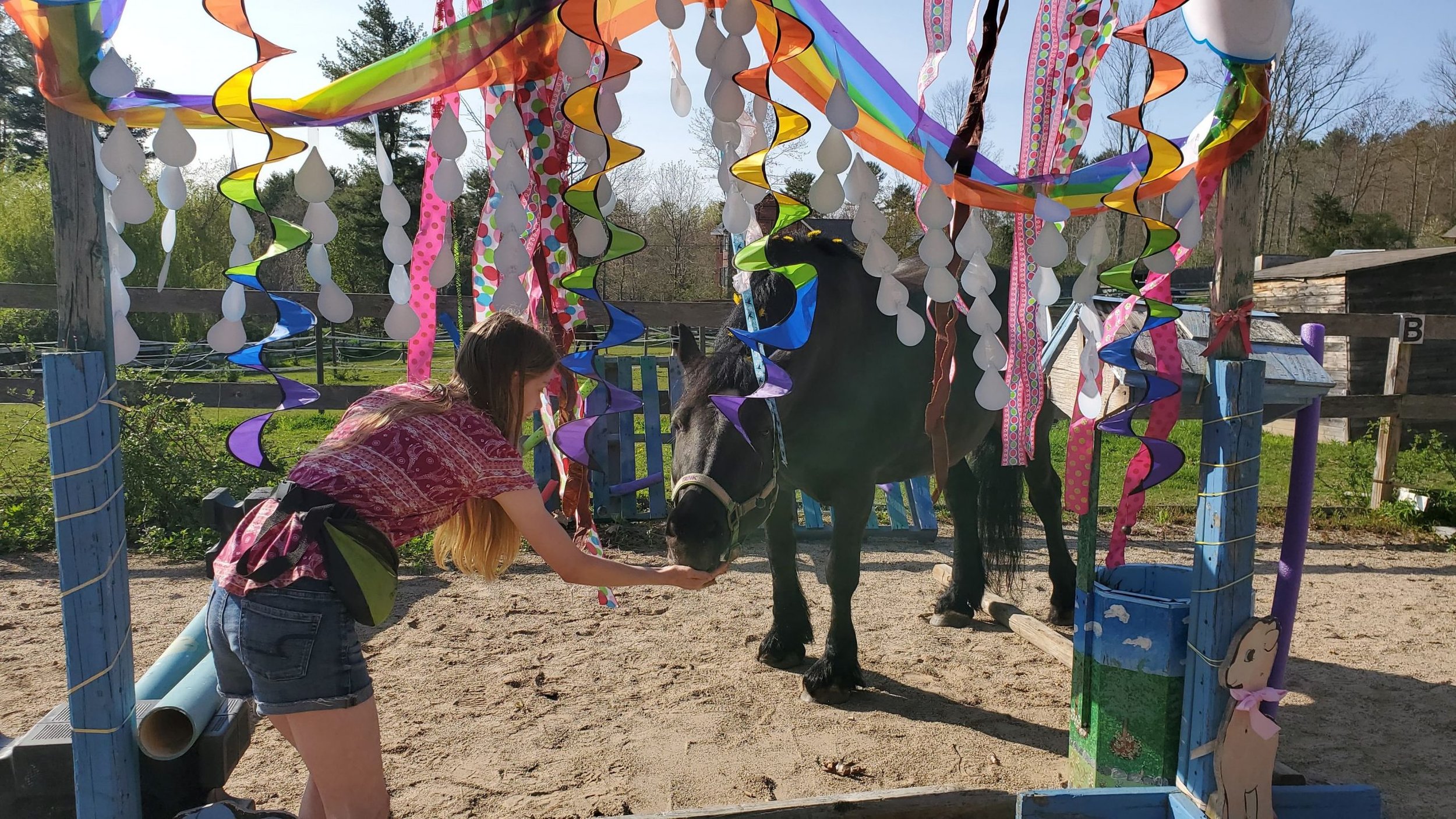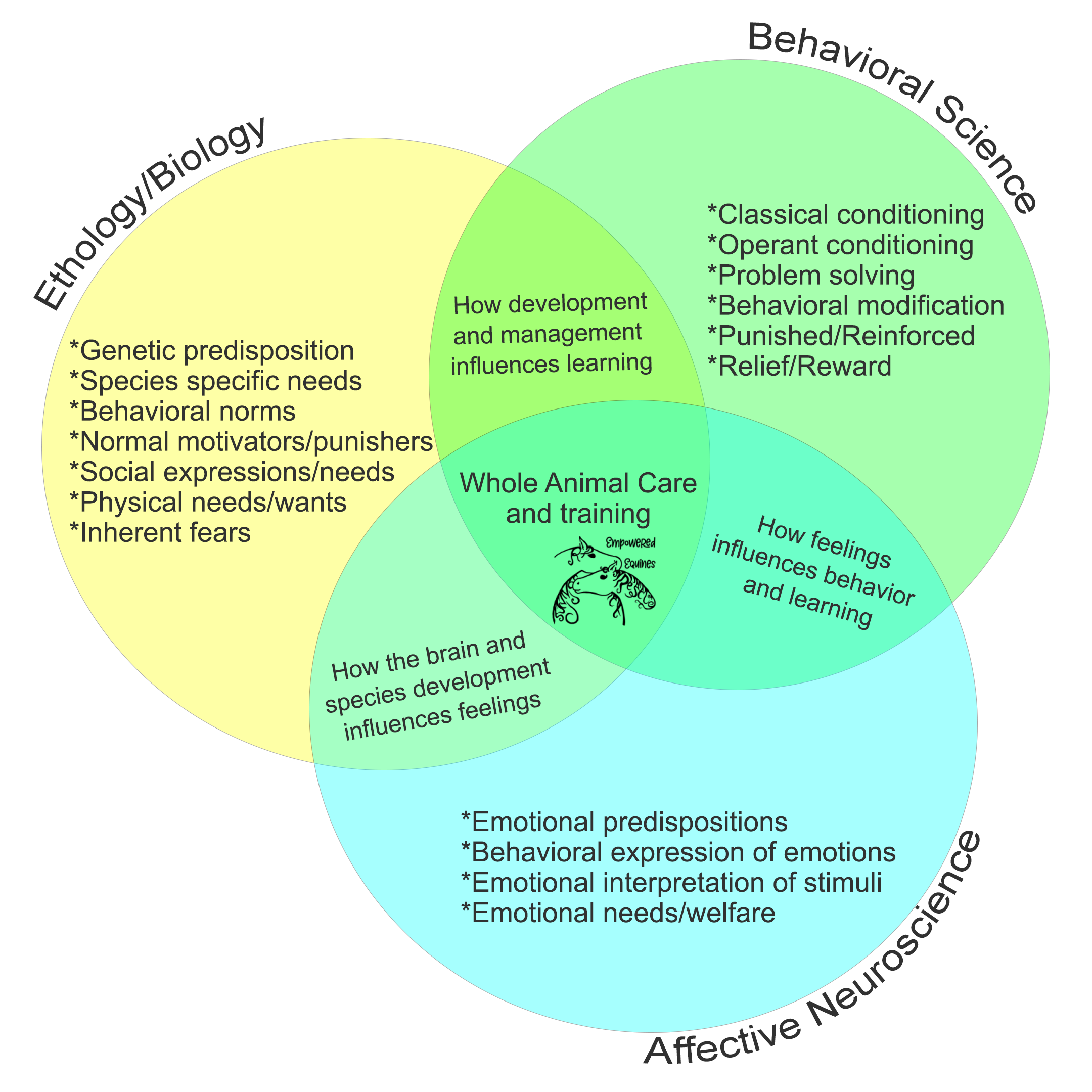Introductory Articles
This is a series of infographics with short, easy to follow articles. You’ll learn the basics of behavioral science, how horses learn, and a lot of the science terminology. We’ll take this information and break it down into how it applies to your regular training sessions, so you’ll learn how to create the behaviors you want and put them on cue and stimulus control.
Advanced Science Articles
These articles are going to take a deeper dive into behavioral science, but also discuss Ethology and Neuroscience of emotions. These 3 sciences together are the basis for everything on how we provide care and management appropriate for our horses, how we train our horses as ethically as possible, and how we understand, empathize, and impact their emotional state.
Lessons from the EE Herd
This blog series is more specifically about the equines and humans at Empowered Equines, and the stories and lessons they’ve taught us. These will include ethical discussions, questions, and topics to puzzle on.
Continue your education:
-
Science based training is not just a way of modifying behavior, but an entire way of living with animals. A solid understanding of our species' natural history helps us best meet their needs and bring out their fullest potential. With an understanding of learning theory and behavioral science we can really begin to influence our companion's choices in the kindest way possible. Positive Reinforcement techniques allow us to develop a strong bond based on mutual understanding, empathy, and compassion. With the help of ethology, biology, and neuroscience, we can better understand how our horses think and feel. Using all this objective, science-based information, as well as our desire to be kinder to horses, we can reshape the horse-human connection.
This book dives deep into the sciences behind how horses behave, learn, and feel with many custom designed charts and diagrams for visual learners to enjoy. There are over 70 instructional worksheets for you to apply this information to real life situations and individual equines. In these, we've detailed how to train a wide variety of ground and mounted behaviors as well as how to address emotional and behavioral problems.
Buy Here -
"Mental Health and Well-being in Animals" by Franklin D. McMillan D.V.M
"Affective Neuroscience: The foundations of human and animal emotions" by Jaak Panksepp
"Animal Training: Successful Animal Management Through Positive Reinforcement" by Ken Ramirez
"Don't Shoot the Dog" by Karen Pryor
"Control Unleashed" by Leslie McDevitt
"How Your Horse Moves" by Gillian Higgins
"Horse Anatomy for Performance" by Gillian Higgins
"Understanding Horse Behavior" by Sue McDonnell
-
Under Construction
-
The Equine Empowerment Training Journal is everything you need to organize, plan, and track your training, enrichment, and relationship building goals!
This journal is a PDF you can print pages from and fill out as desired to track and manage your training. When you purchase you will immediately be able to download and begin!
Includes:
*Checklists of basic behaviors, agility skills, vet prep, and riding
*Stimuli to counter condition
*Fun Enrichment ideas
Keep track of which behaviors you've trained, what to train next, your cues, and notes on what you're working on together.
Session Planning Guides for:
*Shaping a new behavior step by step
*Building Distance, Duration, Distraction-proofing, and Chaining
*Proofing cues/Practicing known skills
*Counter Conditioning
Log your training sessions, keep notes of how the session went, what could have gone better, and what to do for next time.
You can also plan your weeks in advance, focus your weekly goals for training, enrichment, and relationship goals.
Keep yourself organized, progress towards your training goals, and build an amazing relationship with this R+ training journal!
-
A library for articles related to positive reinforcement and ethical progress in the equine community



